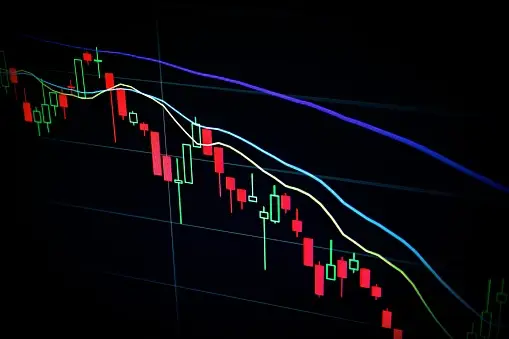Online trading has revolutionized the financial markets, making them accessible to anyone with an internet connection. This democratization of finance has opened up new opportunities for retail investors but also presents a steep learning curve. Advanced methodologies can help traders navigate this complex landscape more effectively, optimizing their strategies and improving their chances of success. In this article, we explore these methodologies, focusing on trading account online using technical analysis, algorithmic trading, risk management, and the psychological aspects of trading.
Technical Analysis: Beyond the Basics
Technical analysis involves analyzing price charts and using statistical figures to predict future price movements. While many traders are familiar with basic concepts like support and resistance levels, advanced methodologies delve deeper:
- Elliot Wave Theory: This theory proposes that market prices move in repetitive cycles, influenced by investor psychology. Identifying these wave patterns can help predict future market movements.
- Fibonacci Retracements: These are horizontal lines that indicate where support and resistance are likely to occur, based on the Fibonacci sequence. They can be crucial in determining entry and exit points.
- Ichimoku Cloud: A comprehensive indicator that provides information on support and resistance, trend direction, momentum, and buy or sell signals. It’s particularly valued for its ability to give a clear picture at a glance.
Algorithmic Trading: The Power of Automation
Algorithmic trading uses computer programs to execute trades at speeds and volumes that are impossible for humans to match. This method leverages mathematical models and quantitative analysis to make trading decisions. Key components include:
- High-Frequency Trading (HFT): Involves making thousands of trades per second to exploit tiny price discrepancies. It requires significant technological resources and expertise.
- Quantitative Trading: Uses mathematical models to identify trading opportunities. For example, statistical arbitrage exploits price differences between similar assets.
- Machine Learning and Artificial Intelligence: These technologies are increasingly used to predict price movements based on vast datasets that include not just market data but news articles and social media sentiment.
Risk Management: Protecting Your Portfolio
Effective risk management is critical in online trading, where market conditions can change rapidly. Advanced methodologies focus on:
- Position Sizing: Calculating the size of a trade based on the risk involved. This often involves the Kelly Criterion, which aims to maximize profits while minimizing the risk of a significant drawdown.
- Diversification: Beyond just holding different assets, advanced diversification strategies may involve trading different asset classes, using derivatives for hedging, and exploring correlations between assets to reduce overall risk.
- Stop-Loss and Take-Profit Orders: Setting automated orders to close positions once certain price levels are reached. Advanced traders use these strategically to protect gains and limit losses.
Psychological Aspects of Trading
Trading is not just about strategies and numbers; psychology plays a significant role. Understanding and managing one’s emotions is vital:
- Discipline: Successful traders stick to their strategies, avoiding impulsive decisions based on short-term market movements.
- Patience: Waiting for the right trading opportunity requires patience, especially for strategies that do not yield immediate returns.
- Risk Tolerance: Knowing your risk tolerance helps in devising strategies that you’re comfortable with, which is crucial for maintaining a clear head in volatile markets.
Sentiment Analysis: Gauging Market Mood
Sentiment analysis has become a crucial tool for traders aiming to gauge the market’s emotional direction. This methodology involves analyzing market sentiment data, which can be derived from social media, news headlines, and market commentary, to predict potential market movements based on the collective mood of the trading community.
- Social Media Monitoring: Tools that analyze tweets, forums, and blogs can provide real-time insights into trader sentiment, offering clues to future market movements.
- News Aggregation and Analysis: Automatically parsing and interpreting the tone of financial news articles can help traders understand the broader market sentiment and its potential impacts on price movements.
Blockchain and Cryptocurrency Markets
Trading in the cryptocurrency markets requires understanding blockchain technology and the factors that uniquely affect these markets. Volatility in cryptocurrency can be much higher than in traditional markets, and prices can be significantly influenced by technological developments, regulatory news, and market sentiment.
- Smart Contract Applications: Understanding the implications of decentralized finance (DeFi) applications and smart contracts can offer unique trading opportunities within the blockchain space.
- Regulatory Environment: Keeping abreast of regulatory changes worldwide can be crucial, as these can have immediate and significant effects on cryptocurrency prices.
Environmental, Social, and Governance (ESG) Criteria
Incorporating ESG criteria into trading decisions is becoming increasingly popular among investors looking to support sustainable and ethical practices. This approach involves evaluating companies based on their environmental impact, social responsibility, and governance practices alongside traditional financial analysis.
- Sustainable Investing: Identifying companies that score high on ESG metrics can not only align investments with personal values but also tap into the growing trend of responsible investing, which may offer long-term benefits.
Behavioral Finance: Understanding Biases
Behavioral finance studies how psychological influences and biases affect the financial behaviors of investors and traders. Recognizing and overcoming these biases can lead to more rational decision-making and improved trading outcomes.
- Overconfidence Bias: Overestimating one’s ability to predict market movements can lead to excessive trading and risk-taking.
- Confirmation Bias: Seeking out information that confirms pre-existing beliefs can lead to ignoring contrary evidence, potentially resulting in poor trading decisions.
Continuous Learning and Adaptation
The markets are constantly evolving, and so should trading methodologies. Advanced traders:
- Keep Learning: They stay updated with the latest trading software, market trends, and economic indicators.
- Backtesting and Forward Testing: Before applying a new strategy, it’s tested using historical data (backtesting) and then in a simulated environment (forward testing) to gauge its effectiveness.
- Adaptation: They adapt their strategies based on market feedback, incorporating new techniques and technologies to stay ahead.
Conclusion
Navigate and open trading account online free and invest with advanced methodologies requires a blend of technical skills, understanding of market psychology, and continuous learning. While the learning curve can be steep, the potential rewards are significant for those willing to invest the time and effort. Whether you’re analyzing complex chart patterns, developing algorithmic trading models, or managing the psychological aspects of trading, the key is to approach the market with discipline and a willingness to adapt. As online trading evolves, so too do the strategies of successful traders, always seeking an edge in the fast-paced world of finance.



